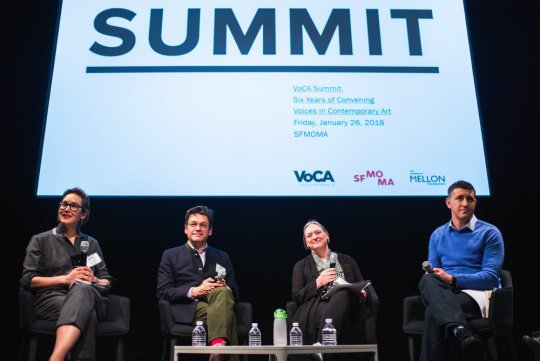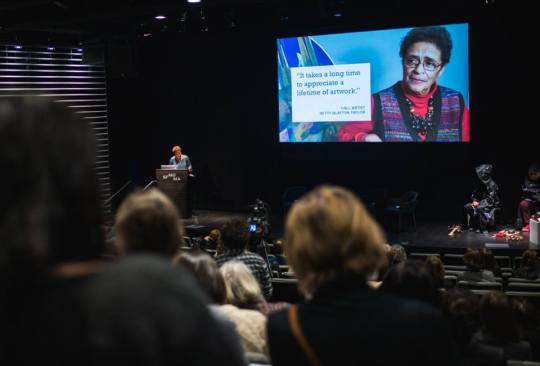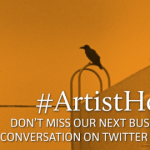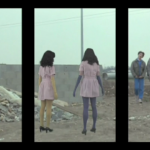Business of Art | Voices in Contemporary Art Summit Overview
Moments of vulnerability and connection in celebration of the Artist Interview Workshop.
On January 26, VoCA (Voices in Contemporary Art) and the San Francisco Museum of Modern Art (SFMOMA) hosted a one-day gathering to mark and measure six years of VoCA’s signature program, the Artist Interview Workshop. Conducted in numerous cities nationwide over the years, these workshops have become an unparalleled resource for arts professionals seeking to engage in thoughtful, guided conversations with artists. Alicia Ehni, Program Officer at NYFA Learning, attended the event and shares the highlights.
Always welcoming diverse voices, the workshops offer an approach that has helped to build a strong community of supporters around VoCA. Ehni herself has been to one of them, attending the 2017 interview workshop last June at the Rebuild Foundation in Chicago. That workshop was led by Jill Sterrett, Director of Collections at SFMOMA and VoCA Board President, and Richard Cándida Smith, Professor of History at UC Berkeley, whose respective experiences in museum-based interview programs and oral history produced a rigorous, instructive, and interactive agenda. They both were also present at the Summit to open the morning session “Looking Back: The Origins of VoCA and the Artist Interview Workshop,” and accompanied by a live music performance by Chris Kallmyer.
Wonderful speakers from different parts of the world also participated in the Summit. They shared their stories of success and struggles and talked about the importance of silence, long-term relationships, and building trust.
Jen Mergel, curator of Platform, a section of The Armory Show, shared her many strategies for interviewing artists, always being sensitive to their needs and particularities of their work. Her strategies ranged from phone calls and skype interviews to studio visits followed by exchanging questions, then building notes on google docs, and enjoyable in-person interviews after lunch.

Michael Auping, the former Chief Curator of Modern Art Museum of Fort Worth, shared insights on the behind-the-scenes of these interviews for the workshops, which are now part of his new book, 40 Years: Just Talking About Art. Focusing on best practices while telling charming stories of his long-term relationships with artists, Auping read between the lines, evaluating the space, the studio, seeing the way an artist evolves, and the way memory evolves and stories change. He also talked about the many gatekeepers around artists, how they sometimes bring ease or difficulty into scheduling a visit.
VoCA Interview workshops also bring awareness to self-examination by reflecting on how we are communicating as interviewers. “For me, the most important thing is to show respect and a humble attitude to the emerging artist. Since they are artists that have not been recognized (by the market or cultural institutions), when a professional cares for their work and shows respect, the results of the interview can be better and you are able to establish a long-term relationship,” says Ruth del Fresno-Guillem, an independent conservator and artist. She presented a project during the Summit where she successfully interviewed 87 artists mostly via Skype, with the intention of documentation of protocols for the preventive conservation of artworks from a collection. She found that many young artists were thinking for the first time about how their art should and should not be shown, how it would age, if parts could or not be replaced, etc. She started creating contracts that outlined the artist’s rights and the conservator’s obligations after attending the VoCA Workshop. “Only by showing care and respect for the artist (established or emerging artist) and their work, you can accomplish an interview that can serve as a productive tool for conservation; the artist can feel connected again to his work in the way they felt during creation,” del Fresno-Guillem stated.
Shervone Neckles-Ortiz, from Joan Mitchell Foundation, talked about the impact that artists are having at shaping arts organizations. Her experience as a practicing artist has informed her work with the program Creating a Living Legacy (CALL), which explores new ways to support mature artists in the thorough documentation and preservation of their legacy. Her presentation was followed by “A Dialogue with Artists,” a conversation with artist Arlan Huang and Beth Krebs, moderated by Robin Clark, about their experience with CALL.
Another participant was Yasmeen Siddiqui, writer, curator and founder of Minerva Projects, an incubator space in Denver, Colorado. Her project was launched in October 2017, and was profoundly informed by Siddiqui’s participation in VoCA’s Artist Interview Workshop in 2016. As part of their mission, Minerva Projects conducts an in-depth oral interview, publishes a book, and organizes a traveling exhibition for each of the resident artists.

Pip Laurenson, Head of Collection Care Research at Tate, another participant, is passionately committed to collaborative research that serves and responds to the art of our time. She highlighted the need to acknowledge different voices, as artists work many times in collaborations, outsource services, and have teams. Artist interviews have the power to open the window onto an artist life as part of their time but also as part of a larger group of their generation. Pip moderated a successful panel “Every Connection Leaves a Trace” next to Narayan Khandekar, Jess Rigelhaupt, and Gloria Sutton.
Jill Sterrett and Chad Alligood “Where do we go from here?” closing remarks made clear the need to continue sharing VoCA’s resources. The Artist Interview Workshops are a unique learning opportunity for those who make, present, conserve, and interpret contemporary art to connect with their peers and gain a greater understanding of the skills need to conduct successful artist interviews.
VoCA’s next workshop will be held at the Carpenter Center for the Visual Arts at Harvard University on June 21-22, 2018. Information and application can be found here.
This article is part of the ConEdison Immigrant Artist Program Newsletter #103. Subscribe to this free monthly e-mail for artist’s features, opportunities, and events.
– Alicia Ehni, Program Officer at NYFA Learning
Images from top to bottom: VoCA Summit, Panel “A Dialogue with Artists” Robin Clark, Beth Krebs, Arlan Huang & Shervone Neckles Ortiz, Photo: Alicia Ehni; Panelists Gloria Sutton, Narayan Khandekar, and Jess Rigelhaupt and moderator Pip Laurenson discuss disrupting art historical narratives during “Every Connection Leaves a Trace,” Photo: Charlie Villyard, Courtesy of VoCA; Summit guest speaker Shervone Neckles-Ortiz describes the on-going partnership between VoCA and the Joan Mitchell Foundation’s Creating a Living Legacy (CALL) program; Photo: Charlie Villyard, Courtesy of VoCA






